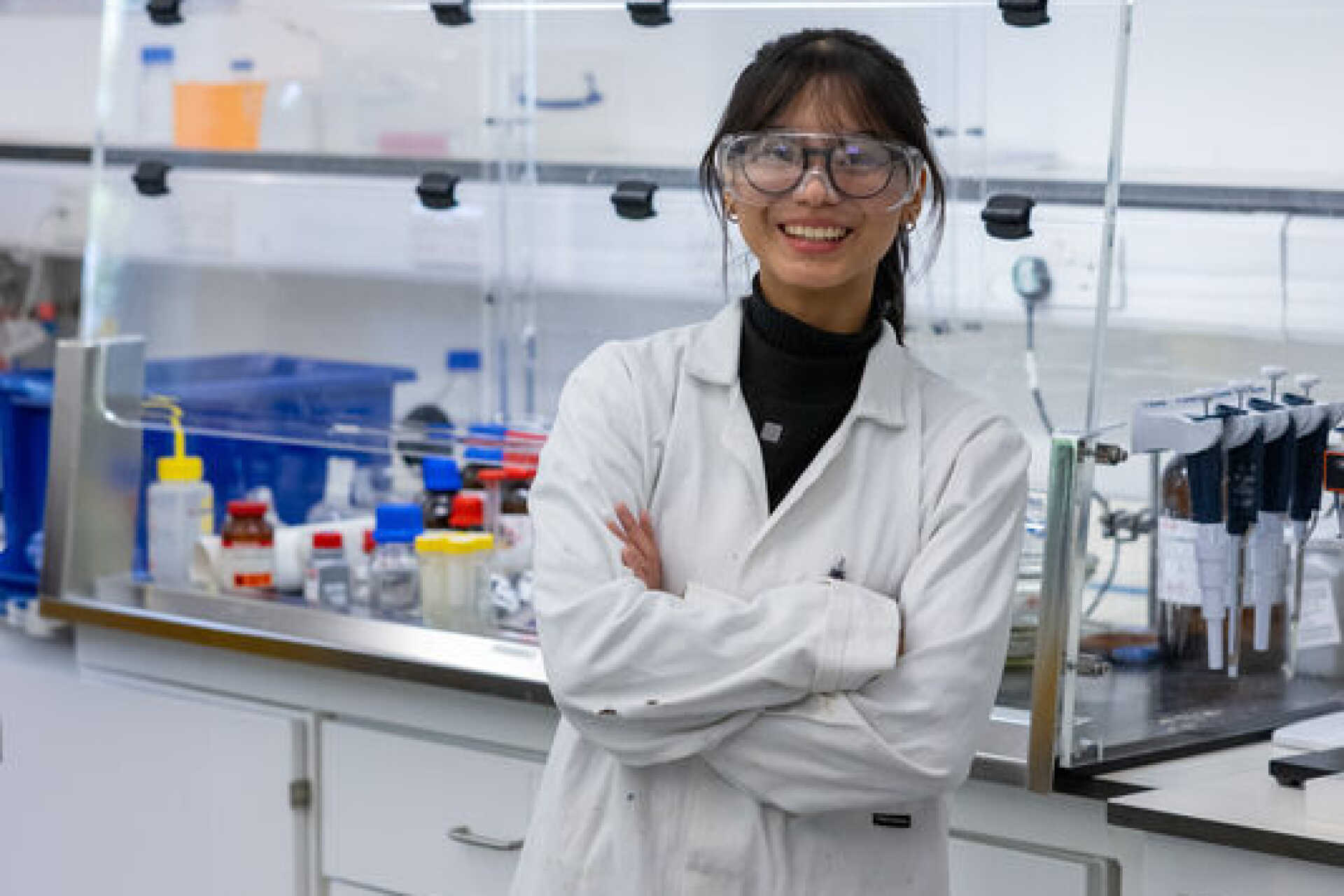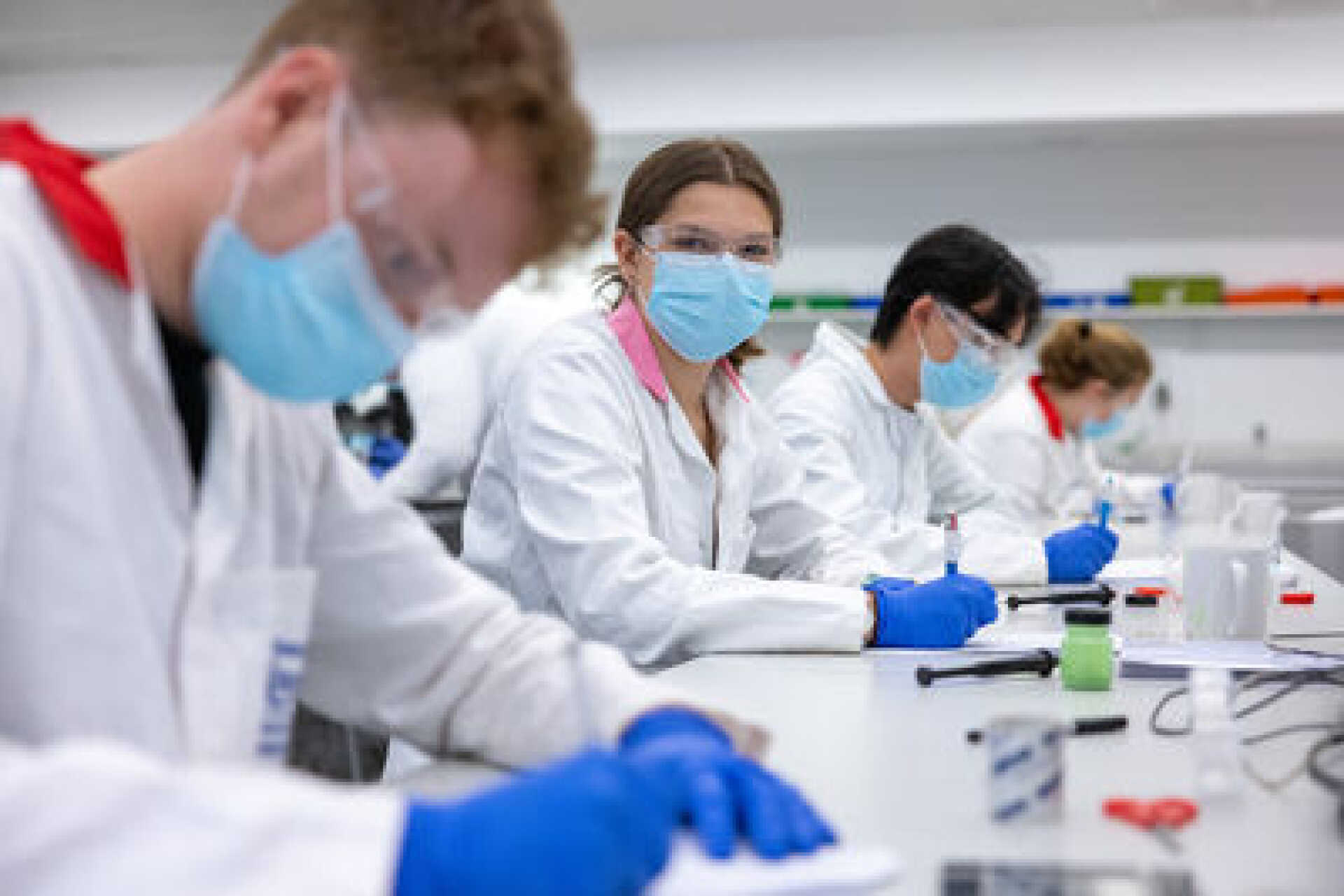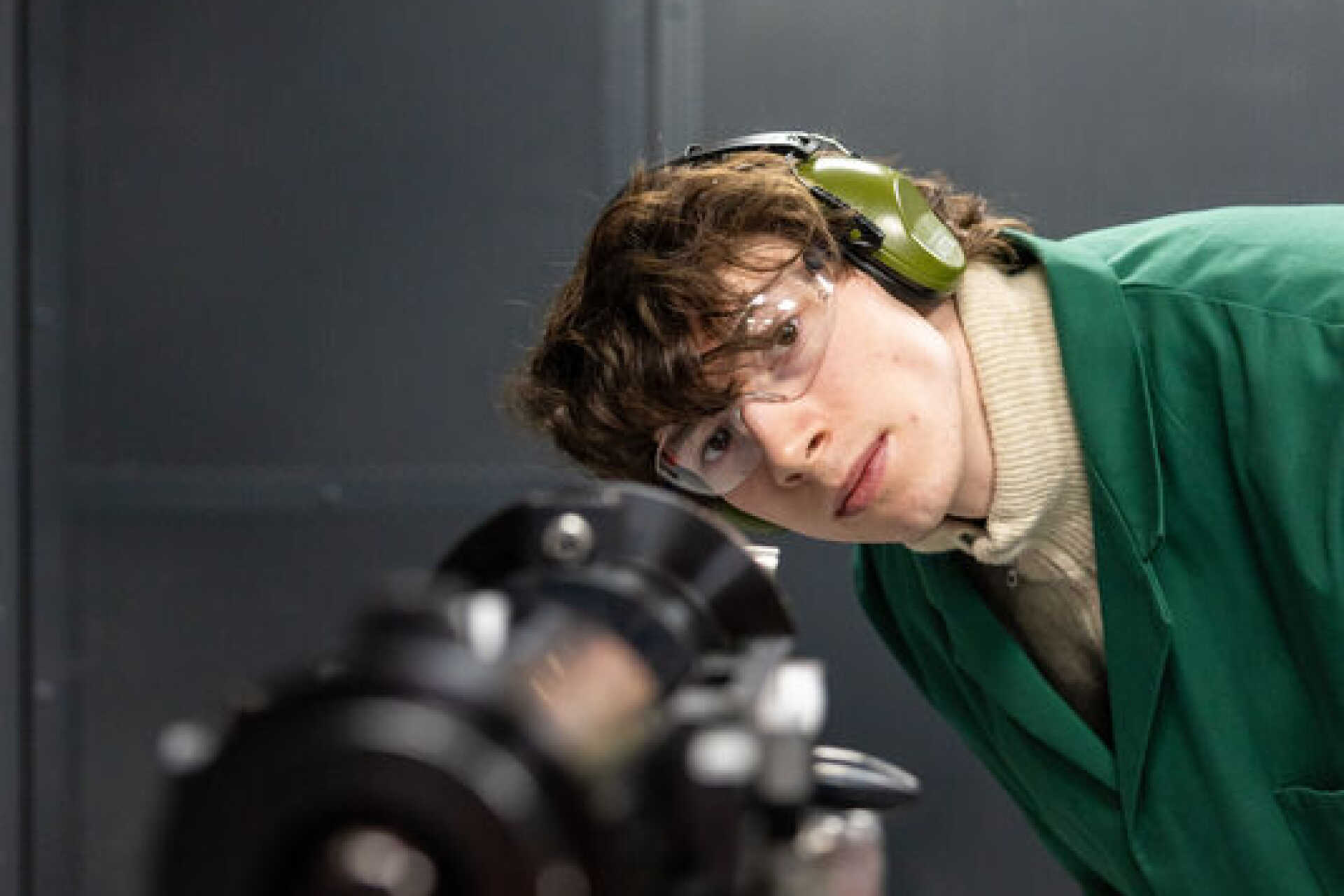What can I do with a degree in Chemistry/Forensic Science?

A degree in Chemistry or Forensic Science from the University of Kent provides you with a solid grounding in scientific theory, analytical techniques, laboratory skills, problem-solving and critical thinking. These skills are highly sought after in both science-based and broader sectors including pharmaceuticals, healthcare, law enforcement, environmental services, education, and beyond. Get ideas and inspiration here before booking a one-to-one session with a careers adviser.
Careers in Chemistry or Forensic Science
Chemistry and Forensic Science graduates are in demand across both public and private sectors. These roles make use of your strong analytical skills, attention to detail, and scientific understanding.
Forensic Scientist Use scientific techniques to search for and examine evidence from crime scenes, supporting criminal investigations. Roles are typically in government or private forensic laboratories.
Analytical Chemist Conduct analysis of substances to determine their chemical composition, and how its behaviour is altered by different conditions, often for pharmaceutical companies, food safety bodies, or environmental monitoring agencies. Opportunities for career progression from a chemical analyst may lead to roles such as Quality Control/Assurance Test Analyst.
Toxicologist Investigate the adverse effects of chemicals, drugs and other substances on human and animal health, and the environment, often working in healthcare, regulatory agencies, or pharmaceuticals.
Crime Scene Investigator (CSI) Secure and document crime scenes, gather, process and categorise physical evidence and liaise with forensic scientists and police investigators to facilitate investigations.
Clinical Research Associate Run clinical trials to test new and existing drugs to ensure they are safe for intended use, determining effectiveness, risks and benefits. Chemical knowledge and skills such as project management, communication, and numeracy will be essential.
Pharmacologist Lead on drug development and delivery to contribute to better healthcare, whilst also ensuring safety and efficacy of pharmaceutical products. This role usually requires a Master’s degree in a relevant field such as pharmaceutical sciences or pharmacology.
Environmental Chemist Monitor pollution levels, test environmental samples and help develop policies or technologies to reduce environmental harm and risk to human health and organisms in the environment.
Science Writer/Publishing Use your scientific background to work in journalism, education, or outreach to make science accessible and engaging to the public and specialists. For publishing roles edit or content development for academic and professional scientific journals.
Alternative career paths
Patent Examiner or Intellectual Property Consultant Assess and protect scientific inventions to prevent others from using, selling or making them.
Teaching Science teaching in secondary schools (via a PGCE or School Direct).
Regulatory Affairs Ensure scientific products meet UK and international regulations to control safety and efficacy
Medical Sales or Scientific Marketing Use your science knowledge and skills in communication, negotiation and collaboration, in a business context.
Civil Service / Public Health Work in roles related to regulation, policy, or science and innovation for the Government.
Where do University of Kent graduates work?
This is a selection of organisations that have employed University of Kent graduates in the past. There are many more possible employers in these and other industries.
- Government Agencies: Home Office, Defence Science and Technology Laboratory (DSTL), Environment Agency, Public Health England
- Law Enforcement and Forensics: Cellmark Forensic Services, Key Forensic Services, Eurofins Forensic Services, Metropolitan Police
- Pharmaceuticals and Healthcare: Pfizer, GlaxoSmithKline, AstraZeneca, NHS Laboratories, Reckitt
- Environmental Organisations: Natural England, DEFRA, Environment Agency
- Education and Research: Royal Society of Chemistry, schools, universities

Find a job
The Careers and Employability Service provides information and advice on job searching to University of Kent students and recent graduates. This includes a vacancy database advertising a range of graduate jobs, placement year and vacation work/internships.
Chemistry & Forensic recruitment platforms
Royal Society of Chemistry Jobs
The Chartered Society of Forensic Sciences
Civil
Service Jobs Find science-related public sector roles
UKRI
Jobs UK Research and Innovation roles
Useful resources
Royal Society of Chemistry (RSC) Professional body with job listings, CPD and accreditation.
Chartered Society of Forensic Sciences (CSFS) Careers and training in forensic science.
Science Council Offers guidance on professional registration and sector insights.
British Toxicology Society For toxicology-related careers and events.
Prospects Chemistry Degree Careers
Tips to stand out
- Tailor your CV: Highlight relevant lab skills, analytical techniques, and project experience. Use CareerSet and/or The Careers Service for feedback.
- Gain real-world experience: Engage in internships, placements, or part time roles in labs, public health or forensic departments to build industry experience.
- Network with alumni and mentors: Use LinkedIn and Kent’s Career Mentoring scheme to build connections with alumni and professionals. Attend RSC or CSFS events, employer panels, or Kent alumni networking opportunities.
- Stay informed: Keep up with scientific developments via New Scientist, Nature, or Chemistry World.
- Engage in extracurricular activities: Participate in societies such as UKC Forensic Society and ChemSoc and engage in programmes and initiatives to develop transferable skills.
- Develop your skills: Learn software or tools such as Excel, LabWare, or statistical analysis programmes like SPSS.

Year in industry
A year in industry can have a big impact on your employability. By gaining real-world experience and learning key skills in the workplace, and pairing these with the knowledge you gain on your degree, you can become a highly employable candidate in the labour market. The year can be based in the UK or abroad, including your home country if you're an international student, and contribute to your final degree. At The University of Kent, many courses include an optional year in industry between your second and final year, where you undertake graduate-level work related to your studies.
Further study
Some graduates pursue postgraduate study to specialise or move into research or academic roles. Options include:
- MSc in Forensic Science, Analytical Chemistry, Toxicology, or Pharmaceutical Sciences
- MRes or PhD programmes
- PGCE for teaching